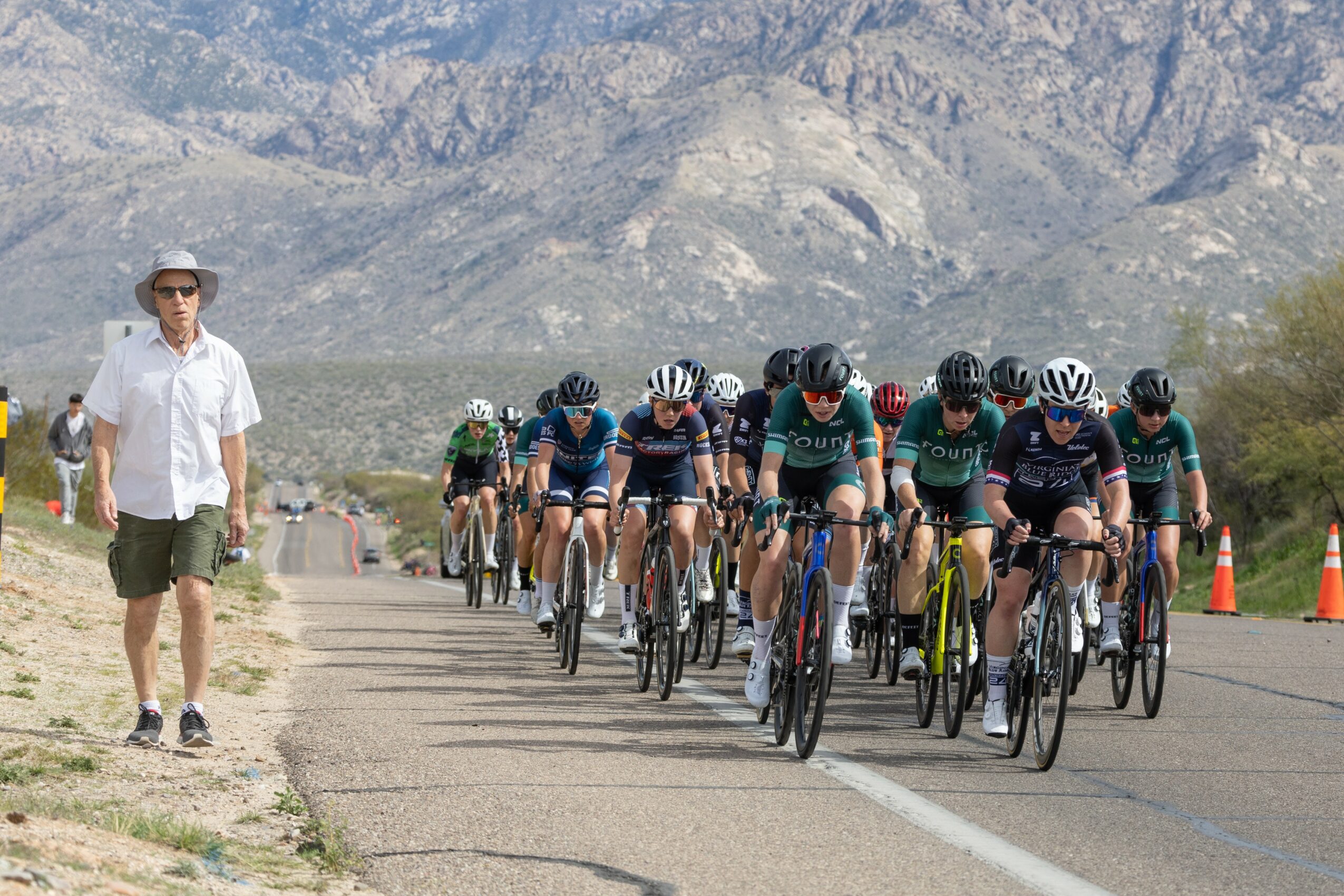

Today we’d like to introduce you to Jennifer Wheeler.
Hi Jennifer, we appreciate you taking the time to share your story with us today. Where does your story begin?
I am a co-founder of Fount Cycling Foundation, a 501c3 non-profit program designed to provide the structure, coaching, and support needed to develop raw talent into skilled professional cyclists. As a former collegiate runner, I had stumbled across the sport of cycling on a bike commute to work at age 29. I had no idea what I was doing or where it would lead me, but I knew I wanted to see how far I could go. In just a few short years–and tons of hard work, I went from commuting to my 9-5 to racing the biggest races in the world with Olympians and World Champions.
Although I had skyrocketed to the top level and accomplished my dreams, I really struggled mentally with internal pressure, balance, finances, skills–things you need to dial to compete at the highest level in any sport or career. Cycling is a sport of 80% lows and 20% highs, and in my fast pursuit of greatness, I bypassed fundamentals and establishing a rock solid foundation of support–which is how you get through the lows. After two short years as a professional cyclist, I quit, established a career unrelated to cycling, and didn’t race my bike again for 5 years. In 2017, I met my husband, David Richter, a former professional cyclist, and we decided to start Fount Cycling Foundation to provide a pathway and support system for budding cyclists to get to the top.
Let’s dig a little deeper into the story – has it been an easy path overall, and if not, what challenges have you had to overcome?
When we started Fount Cycling in 2019, we never intended to start a women’s national pro team. Our team organically morphed into what it is today–and we are still growing so there are always going to be learning curves. Whenever you start anything need, there are always hurdles you must jump along the way. As a coach and team owner, I definitely have made and learned from mistakes on how to motivate, when to push and when to let it go, and also how to be patient and help build confidence in riders who are so new to the sport. As a former rider, my goal is to be empathetic and learn what drives each individual to succeed. It takes a full season–or more– to truly take the time to be curious and listen and coach in a way that each rider know the value they bring to the team.
Logistically, funding is always a challenge. We started out self-funded but are quickly outgrowing that model. My passion is in the sport and coaching, so fundraising is a learning curve. Although going to the Olympics, getting a college scholarship, or becoming a national-ranked cyclist is intriguing on its own, the real message is that racing bikes can be life changing for everyone involved. Sport provides a platform for self-discovery and builds so many traits you can apply to everyday life. I am continuously working on ways to convey this message that people can see the impact they’re making when donating to our non-profit or just being involved in the community in some way.
As you know, we’re big fans of you and your work. For our readers who might need to become more familiar with what you do, what can you tell them about what you do?
The Fount Cycling model is simple–we recruit based on potential, not results–meaning you don’t necessarily need a resume to get our team. We look for former collegiate athletes in any sport or, in some cases, non-athletes who missed their calling but possessed the same talent, grit, perseverance, and discipline to make it to the top in any profession. We reach out to our communities, colleges, friends, and colleagues–everyone always knows “someone” who has “a gift” for something. We also hold an annual talent identification camp open to anyone, regardless of your cycling experience, to try out for a 3-day cycling combine where we test speed, endurance, skills–and mindset to be a champion.
From this talent pool, we choose 10 candidates to sponsor for a professional cycling season. Our sponsorship includes equipment, apparel, free coaching, testing, bike fitting, and a full calendar of expense-paid national-level events so they can test their ability amongst the best in the nation, such as Olympians and seasoned pros. Through this model, we have grown women’s sports, and taken athletes who came to us in tennis shoes and sweatpants and transformed them into World Tour Riders, USA Team candidates, and nationally ranked cyclists who discovered their cycling talent and surpassed their wildest dreams through our program.
Can you talk to us about how you think about risk?
To win a bike race, you need to take risks. You need to be decisive and go with your gut. This is how I approach risk in my own life. It can be scary to sacrifice stability to pursue a dream. I went through this in my own path as an upcoming cyclist–and I still go through this internal debate every year thinking how am I going to manage all of this, especially now when it’s not just me and I have others depending on you. Despite all my pros and cons lists, the one thought that keeps me pushing forward is if I reflect on my life 20 years from now, what will I be most proud of? For me it’s changing lives, providing a pathway for others to reach their true potential, and continuing the mantra of “paying it forward” when it comes to all the kindess, support, generosity others have provided to me in the sport.
Contact Info:
- Website: https://www.fountcycling.com
- Instagram: instagram.com/fountcycling
- Facebook: facebook.com/FountCyclingKY
- Linkedin: linkedin.com/in/fountcycling
















Image Credits
Snowy Mountain Photography












